MARKET FOCUS: MIDDLE EAST INVESTMENT BANKING
By Gordon Platt
The Middle East may present political challenges, but dealmakers anticipate that 2014 will be the year M&A flourishes in the region, particularly in the GCC countries, as well as Iraq and Egypt.

Despite a challenging operating environment marked by ongoing political turmoil, the Middle East is enjoying an investment-banking pickup, as capital markets in the region continue to develop. Financial advisory and underwriting fees in the region rose 20% last year, according to Thomson Reuters. That was nearly three times the global average increase of 7%. Sukuk issuance was strong, and equity markets in the region posted some of the biggest gains worldwide. A number of major initial public offerings are in the works, and bankers are optimistic about the year ahead, despite the pullback in other emerging markets.
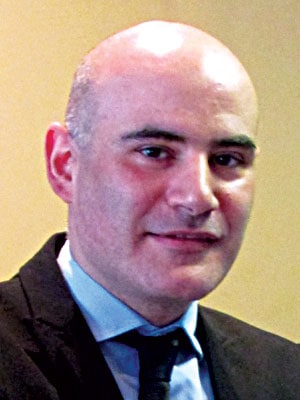
|
|
|
Stphane Abichaker, head of investment banking at Lebanons Blominvest Bank, says the outlook is upbeat for activity in both the Levant (the eastern Mediterranean) and the Arab Gulf countries.
While the political and security situations in Egypt and Syria have taken a toll on investment banking markets in the Levant since 2011, it remains [clear] that deals have been postponed and delayed for too long, Abichaker says. Consequently, we expect to see some activity come back in 2014, with levels higher than in 2013.
As for the Gulf, which dwarfs the Levant in terms of scale, Blominvest is even more optimistic. Qatars project finance activity could induce increased M&A and underwriting, while Dubais economic pickup is being driven by another real estate boom, and the outlook for Saudi Arabia is very positive, Abichaker says.
Anas Al Sheikh, counsel at Clifford Chance, the first law firm to operate a partnership in Saudi Arabia, says: We believe the opening of the kingdom to foreign investors is the next logical step toward a more-developed capital market. The Capital Markets Authority (CMA) has indicated on several occasions that the objective of opening up the Saudi market is to increase the number of sophisticated investors, which will eventually contribute to the development and stability of the market, and not simply to create more liquidity, which might be the objective of other markets in the region.
Al Sheikh, who joined the Al-Jadaan & Partners Law Firm last October, transitioned to Clifford Chances Riyadh office in January 2014, when the two firms created their partnership. Previously, he was manager of rules and regulations and international standards in the CMAs legal department.
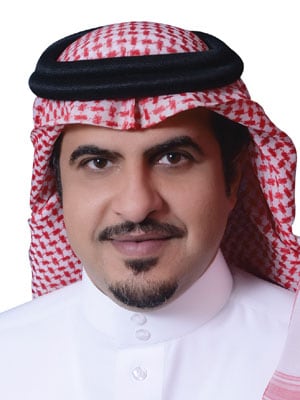
|
|
|
PROSPECTS FOR M&A ARE LOOKING UP
Although there were only five IPOs in Saudi Arabia last year, Al Sheikh says: We expect an upswing in 2014, particularly in light of higher liquidity in the market and generally more-positive economic conditions. We also expect that the Saudi market will experience an increase in M&A transactions, especially in the insurance sector, where consolidation of some market participants is widely anticipated.
The equity capital markets in the Gulf Cooperation Council (GCC) are experiencing their strongest upturn since the 2008 global financial crisis.
Nicholas Gilani, managing director and head of merchant banking at National Bank of Abu Dhabi, says: In the product suite of many an investment banking firm, the ECM [equity capital market] component should be figuring more prominently than DCM [debt capital markets] or M&A this year. There will be more IPOs, both in the UAE and Saudi Arabia, unless there is a geopolitical event disrupting the markets or the onset of financial contagion from the West, as in 2008.
NBAD topped the league tables for equity capital market fees in the Middle East last year, according to Thomson Reuters.
Banks in the region have liquidity and are willing and able to lend, Gilani says. Rates are low, and even nonregional banks are flocking back to the region, he says. Therefore, the market for bilateral, club and syndicated loans will probably overtake the DCM. Corporate treasurers are talking to their bankers, as well as their DCM advisers.
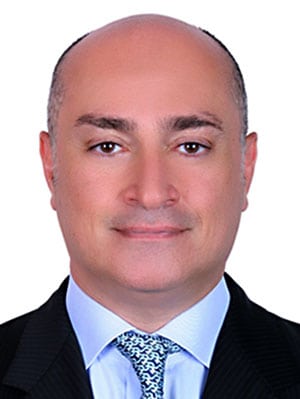
|
|
|
Gilani says investment banking implies the use of financial intermediaries and advisers in investment outcomes. In the Middle East, unlike in the United States or Europe, major investments are made that do not necessarily involve investment banks or other intermediaries, he says. Therefore, fees are not necessarily a true indicator of investment activity within the region.
In calculating fees, one also has to separate those transactions that involve outbound investments by sovereign wealth funds that typically target nonMiddle Eastern opportunities, Gilani says. The fees are substantial, but they cannot be counted toward fees derived from the region, he says.
The Middle East is not a homogenous economic entity. In thinking about discrete investment banking markets in the region, I break it down into five categories, Gilani says.
The first is the Maghreb (Morocco, Algeria, Tunisia and Libya). The second is Egypt (all by itself). The third is the Levant (Syria, Lebanon, Jordan and Palestine). Next is the GCC (Saudi Arabia, Qatar, Kuwait, Bahrain, Oman and the UAE). And finally, Iraq.
Each can be argued to have their own specific investment outlook, Gilani says. The most promising are in the GCC, with the UAE and Saudi Arabia as frontrunners. Next would be Iraq and Egypt. In the medium-to-longer term, I am favorably disposed toward these [latter] two nations.
SAUDI STOCK MARKET LEADS THE WAY
The Maghreb and Levant are constrained by geopolitical strife and heavy government involvement in industry, Gilani says. Besides, they do not offer the population or land mass that would make for large markets, he says. Syria is an exception, as it offers size, a manufacturing base and an educated middle class, but the country is tragically in the throes of a vicious civil war.
Mohamed Beyhum, executive general manager of Lebanons BankMed, says: With signs of improved global economic conditions going into 2014 and a general sense of relative optimism in the corporate world, the investment banking industry seems well positioned to build on last years growth momentum. In the Middle East, notwithstanding sustained evidence of pockets of vulnerabilities in certain countries, we continue to look favorably on the short-term prospects in the oil-rich countries, most notably Saudi Arabia, Qatar and the UAE.
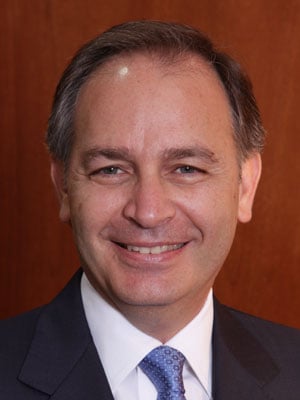
|
|
|
SaudiMed Investment, BankMeds investment banking arm, expects Saudi Arabias stock market to be among the most active in the region. The Tadawul, as the kingdoms stock exchange is known, is expected to benefit from the governments aggressive infrastructure and housing development plans, Beyhum says. Saudi Arabias record budget for 2014, targeting non-oil sector funding, sends a clear message to the Saudi private sector to confidently carry through with their expansionary plans, he says.
Beyhum says that the Tadawuls initiatives to develop the local capital market by introducing listings of tradable rights, REITs, new classes of ETFs and warrants should serve to increase the markets breadth and scope.
There are already 15 scheduled IPOs in the kingdom this year and 45 for the region as a whole, he says. The general environment appears ripe for further IPO activity, he adds.
While bank-lending conditions in the region are expected to continue to improve on the back of sustained pent-up demand for business, commercial, and residential real-estate loans, there could be some moderation in total private-sector credit growth in the short term, following the relatively strong growth over the past three years, Beyhum says.
The M&A market in the Middle East experienced solid growth in activity last year, with the total number of deals almost doubling to 104 from 58 in 2012. Notwithstanding our relatively cautious view of the regions macroeconomic environment, the fundamentals favor increased M&A activity, Beyhum says. Sustained accumulation of cash on the balance sheets of corporations in the GCC region and an increased backlog of investment opportunities amid improved corporate valuations could stir further activity.
With regard to sukuk issuance, overall market conditions, especially in the oil-exporting countries, are conducive to further growth, Beyhum says. There is ever-growing demand from regional as well as international investors to hold Islamic banking assets, and an overwhelming preference on the part of regional sovereign and corporate issuers to use their healthy credit profile to secure their short- and medium-term funding needs.
Islamic assets worldwide are expected to exceed $2 trillion this year, according to a report by the UK Islamic Finance Secretariat. The Muslim population of 1.6 billion accounts for about one-quarter of the worlds population, but shariah-compliant assets make up only 1% of the worlds financial assets. More than 20 UK-based banks provide Islamic financial services, of which six are fully shariah-compliant. The UK Treasury recently appointed law firm Linklaters to advise the UK government on its first sukuk issue. The UK is highly regarded for the market-leading work it has done to level the playing field for Islamic finance, says Neil Miller, head of Islamic finance at Linklaters. The Islamic banks operating in London have come through the financial crisis and are investing in the country. A UK sovereign sukuk will demonstrate further government commitment to alternative finance and help secure more inward investment from the Middle East, Miller says.
GROWING DEMAND FOR ISLAMIC PRODUCTS
Adel Al-Majed, vice chairman and CEO of Kuwaits Boubyan Bank, says: Whether in Kuwait or the whole Middle East region, all indicators show an increasing demand for Islamic banking and financial products and services, which have become very popular, even for non-Muslims. The matter has not only to do with shariah compliance but also with the service provided to customers.
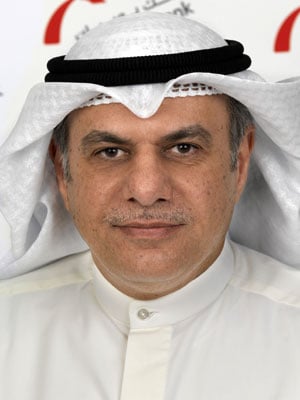
|
|
|
The outlook for the GCC economies is bright, assuming stable oil prices and taking into account clear development plans for all these countries, Al-Majed says.
New rules allowing covered bonds in the UAE and sukuk debt in Oman could see further strength in the growth of debt securities in 2014, according to economists at Kuwaits NBK. Outstanding bonds and sukuk issued by GCC entities reached $257 billion in 2013, up 16.4% from a year earlier.
Qatars QInvest partnered with National Bank of Oman to present a sukuk seminar in Muscat in January, under the auspices of the Oman Capital Market Authority. Hani Ibrahim, head of debt capital markets at QInvest, says: We believe that this partnership will facilitate the increased awareness of sukuk as a financial instrument to the Omani issuer and investor base. The government of Oman recently announced plans to issue sovereign sukuk on the domestic market this year.
The first international sovereign sukuk was issued by Bahrain in 2001 and marked the beginning of the GCC Islamic capital market. The sukuk market has grown at a compound annual rate of 40.5% between 2008 and 2013 and is expected to reach $237 billion by 2018, according to Thomson Reuters.
Fears that the Federal Reserves tapering of its bond-buying program will cause interest rates to rise caused a surge of sukuk issuance in December 2013. Total sukuk issuance for last year totaled about $120 billion, according to KFH Research, a subsidiary of Kuwait Finance House. A total of 126 sukuk were issued in December, up from 54 in November and 66 in October.
Meanwhile, mergers and acquisitions are increasingly common in the Middle East, although competition for advisory assignments remains intense. The energy and power, telecoms, and metals sectors have been particularly active.
The UAE led the market in terms of the value of M&A transactions in the region in 2013, owing to two very large deals. Dubai Aluminum and Emirates Aluminum announced the merger of their businesses last June to create a new company, Emirates Global Aluminum, which will have an aggregate enterprise value of more than $15 billion. Morgan Stanley advised the acquirer, Dubai Aluminum.
The merger of Abu Dhabis Aldar Properties and Sorouh Real Estate also became effective last June. Aldar Properties is one of the largest listed real estate companies in the region. The all-share deal was valued at approximately $1.5 billion. Credit Suisse, National Bank of Abu Dhabi and Goldman Sachs advised Aldar Properties. Goldman Sachs, National Bank of Abu Dhabi, and Morgan Stanley advised Sorouh Real Estate.
Middle Eastern companies raised $4.2 billion in the equity capital markets last year, a decline of 39% from 2012, according to Thomson Reuters. Despite the decline in overall equity issuance, IPOs recorded the highest level since 2008. Asiacell, Iraqs first publicly listed mobile telecom operator, was the largest IPO of 2013, with its $1.3 billion debut. That was the most ever for an IPO in Iraq and the largest in the Middle East since Saudi Arabian mining company Maadens IPO more than four years ago. Baghdad-based Rabee Securities, whose principals are Iraqi nationals, was sole bookrunner of the Asiacell IPO and took first place in Thomson Reuters 2013 Middle Eastern equity capital market ranking with a 31% share of the market.
In spite of their large current-account deficits, the regions non-oil economies have stayed out of the spotlight during the recent turmoil in many emerging markets, says William Jackson, emerging markets economist at Capital Economics. This could be owing to backstops from the International Monetary Fund and aid from the GCC countries, he says. So long as these remain in place, the region should be able to withstand market turbulence related to concerns about tighter global monetary conditions relatively well, Jackson says. However, volatile domestic political situations will continue to pose a major downside risk.
|
M&A Financial Advisers |
Rank Value
($billion) |
Rank |
% Mkt
Share |
No. of
Deals |
| Morgan Stanley | 12.68 | 1 | 29.2 | 6 |
| Goldman Sachs | 8.29 | 2 | 19.1 | 5 |
| Bank of America Merrill Lynch | 7.60 | 3 | 17.5 | 7 |
| Lazard | 6.93 | 4 | 16.0 | 7 |
| Moelis | 6.34 | 5 | 14.6 | 3 |
|
Industry Totals* |
43.37* | 556 | ||
|
Equity Capital Market Bookrunners |
Rank Value
($billion) |
Rank |
% Mkt
Share |
No. of
Deals |
| Rabee Securities | 1.277 | 1 | 30.6 | 1 |
| National Bank of Abu Dhabi | 0.757 | 2 | 18.1 | 2 |
| Deutsche Bank | 0.308 | 3 | 7.4 | 2 |
| Masraf Al Rayan | 0.261 | 4 | 6.3 | 1 |
| HSBC Holdings | 0.256 | 5 | 6.1 | 2 |
|
Industry Totals* |
4.174* | 18 | ||
|
Debt Capital Market Bookrunners |
Rank Value
($billion) |
Rank |
% Mkt
Share |
No. of
Deals |
| HSBC Holdings | 6.12 | 1 | 15.8 | 28 |
| Standard Chartered | 3.61 | 2 | 9.4 | 23 |
| Deutsche Bank | 3.32 | 3 | 8.6 | 16 |
| Qatar National Bank | 2.86 | 4 | 7.5 | 7 |
| Citi | 2.77 | 5 | 7.2 | 15 |
|
Industry Totals* |
38.60* | 63 |
Source: Thomson Reuters
*Figures may not add up as more than one bank typically obtains credit for any one transaction



